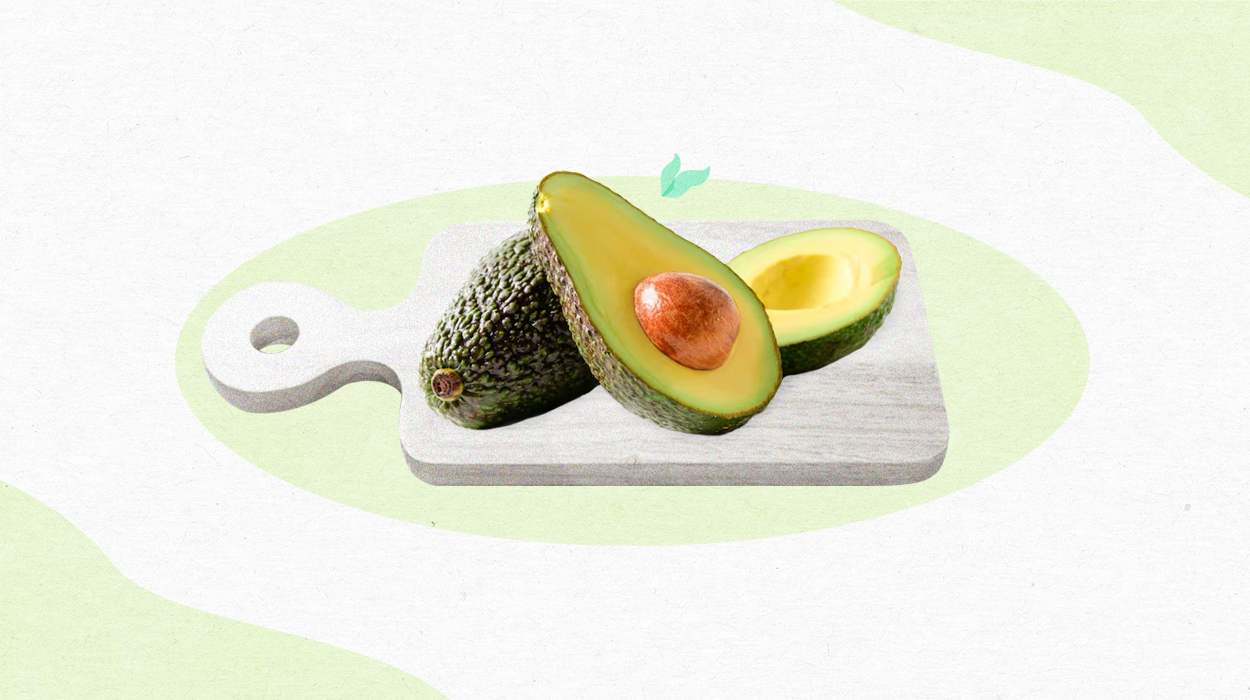 Evidence Based
Evidence Based
Evidence Based
This article is objectively based on relevant scientific literature, written by experienced medical writers, and fact-checked by a team of degreed medical experts.
Our team of registered dietitian nutritionists and licensed medical professionals seek to remain objective and unbiased while preserving the integrity of any scientific debate.
The articles contain evidence-based references from approved scientific sites. The numbers* in parentheses (*1,2,3) will take you to clickable links to our reputable sources.
Are Avocados Vegan? Unveiling The Truth Behind This Fruit In 2024

Are avocados vegan? As a plant-based fruit, they are inherently vegan. However, most strict vegans shy away from eating avocados for the same reason most vegans don’t eat honey.
With their creamy texture and rich flavor, avocados are a favorite addition to many dishes.
Let’s peel back the layers and discover if avocados truly fit into the vegan diet.
Are Avocados Vegan-Friendly?
Yes, avocados are vegan and are plant-based, but many vegans don’t eat avocados for ethical reasons. This is because many vegans believe that commercial farming practices used to grow avocados exploit bees and disrupt ecosystems. Planting an avocado tree or sourcing from a local farmer’s market is the best way to ensure avocados align with your specific beliefs.
Can Vegans Eat Avocado?
Vegans can eat avocados, but many who follow a vegan lifestyle choose not to for ethical reasons. Avocados are essentially plant-based because they grow on trees. So, they are vegan-friendly by this logic.
However, many vegans don’t consume avocados because of how they are grown.
Why Are Avocados Not Vegan For Some Vegans?
Producing avocados is challenging, and the increased market demand for the fruit has led to new cultivation methods involving bee pollination that aren’t typically vegan-approved. Avocado trees require warm, consistent climates for successful growth and require a significant amount of water to produce fruit.
Avocado trees are sensitive to soil water availability, where even mild moisture issues can negatively impact growth. They also require proper drainage and elevation to prevent root saturation.
Therefore, many farmers turn to farming practices that manipulate crops. This is where vegans have issues with avocados.
Avocado crops rely on bees for pollination. In some cases, commercial beekeeping is used to help commercial farmers bring in boxes of honeybees to pollinate their flowers. Migratory beekeeping is popular in avocado harvesting. However, many avocado trees are pollinated by wild bee populations and other insects, so commercial beekeeping is not an issue.
Essentially, farmers pay migratory beekeepers for the services of their honeybees, which is called pollination rental.
The process of migratory beekeeping is unacceptable to most vegans because it involves breeding and exploiting bees for pollination services. Unfortunately, many bees die in the transportation process. Migratory beekeeping also isolates the bees, which is considered unethical to vegans.
To avoid migratory beekeeping practices, purchase your avocados from a local farmer’s market. This way, you support the local economy and build relationships with farmers and other consumers.
Additional Facts About Avocados & Veganism
Here are some other facts to consider regarding the avocado industry:
- Some vegans choose to eat avocados because intent matters. Since they aren’t directly an animal product, some vegans eat avocados.
- Organic avocados or those from smaller farms might have fewer issues related to commercial beekeeping.
- Like avocado fruit, butternut squash can be pollinated through migratory beekeeping practices.
- Almonds also face scrutiny in the vegan community because of their potential exploitation and impact on bee populations.
Avocados Nutritional Facts
Avocados have a high monounsaturated fat and high fiber content. They are also low in sugar and carbohydrates. This nutritional profile can help improve insulin sensitivity and regulate blood sugar levels.
The high fiber content of avocados slows down the absorption of carbohydrates.[1] So, eating avocados can aid in glycemic control and make you feel full longer. This can also promote healthy weight management.[2]
Additionally, avocados are a good source of many essential nutrients associated with improved cardiovascular health. They are an excellent source of potassium and vitamins C, E, and K, as well as the B-complex vitamins. These nutrients are crucial in blood pressure regulation,[3] immune function,[4] energy metabolism, and bone health.
It’s important to note that despite their many health benefits, avocados are calorie-dense, with one medium-sized avocado containing around 225 calories.[5]
This is why it’s essential to be mindful of portion sizes, especially if you monitor your caloric intake for weight management. Enjoying avocados as part of a balanced diet can provide essential nutrients but should be consumed in moderation.
Are Avocados Healthy?
Avocados make a great addition to any diet when consumed in moderation. Here are some potential health benefits of adding an avocado to your daily meals:
Blood Sugar Control
Since avocados have a low glycemic index,[6] they don’t typically impact blood sugar levels. A food with a lower glycemic index is typically digested slower and is less likely to cause blood sugar spikes.
Their healthy fat and high fiber content can help regulate blood glucose levels, making them an excellent option for people with diabetes. Studies have also shown that avocados can improve insulin sensitivity.[6]
Weight Management

The combination of fiber, low sugar content, and healthy fats in avocados can help control your appetite and prevent overeating. The best weight management results come from eating avocados in moderation, as they are still calorie-dense.
One-quarter to one-half an avocado is typically a healthy daily serving to keep calorie intake at a weight maintenance level.
Heart Health
Avocados are rich in oleic acid, a type of fat that can improve heart and blood vessel health.[5] These monounsaturated fats may do this by potentially reducing harmful total cholesterol levels and by lowering low-density lipoprotein[7] cholesterol.
Anti-Inflammatory Properties
Avocados offer anti-inflammatory properties[8] for those with chronic inflammation. Specifically, certain antioxidants and polyphenols, beneficial plant compounds found in avocados, can provide these benefits. These compounds can support overall health and reduce inflammation[9] throughout the body.
Aids In Digestion

Avocados are rich in dietary fibers, which can improve digestion[10] and promote regular bowel movements. The high fiber content can help individuals with chronic constipation maintain a balanced digestive system.
Nutrient Absorption
Fatty acids found in avocados can also aid in nutrient absorption.[11] Certain essential vitamins and minerals, such as vitamins A, D, E, and K, require fat for absorption. Adding a healthy fat source like avocado to your meals can, therefore, enhance the absorption of these fat-soluble vitamins.
Are There Avocados That Are Entirely Vegan?
It is possible to find avocados that are more vegan-friendly than others. For starters, you can plant an avocado tree in your yard to grow your own avocados. This ensures vegan crops as you cultivate naturally and avoid processes that involve migratory beekeeping.
Another option is to find local smaller farms. Fruits sold at local farmer’s markets typically pollinate crops naturally. Buying avocados from these sources ensures you stay aligned with your vegan lifestyle and helps support your local economy.
If you buy your food from the grocery store, try a health food store that sells organic foods. Organic farmers typically avoid animal exploitation in their growing processes.
Ask a store associate if they know the supplier directly for peace of mind. You can then contact them to ask how they pollinate their avocado trees and whether their processes involve migratory beekeeping.
Another way to take advantage of the health benefits of avocados is to look for organically sourced green powders that contain avocados. These are an excellent way to get your daily intake of fruits and veggies like avocados.
Conclusion
Choosing plant-based vegan food is a great way to reduce our global impact, but not all plant-based foods are vegan. Is avocado vegan? While avocados are outwardly vegan, their crops rely on bees to grow.
Many cultivation methods use commercial beekeeping to pollinate crops, which is considered unethical by most vegans.
Still, avocados offer many health benefits, making them a great addition to your diet. You can still eat avocados as a vegan, but you’ll need to take extra steps to maintain your vegan lifestyle. Grow your own avocados or shop at a local farmer’s market to ensure your avocados are truly vegan.
Frequently Asked Questions
Eating avocados is a personal choice. Some vegans choose to avoid them if they’re grown by commercial farming practices that use migratory beekeeping for pollination.
Guacamole is typically vegan if it’s made with a traditional recipe of avocados, limes, onions, tomatoes, cilantro, and sea salt. However, certain add-ins, farming processes, and cross-contamination may impact vegan status.
Figs, butternut squash, almonds, and melons may be considered non-vegan based on their farming practices.
Yes. Homegrown avocados and those grown organically or by local farmers are typically okay for vegan diets.
The idea that not all fruit is vegan revolves around ethical considerations on the foods’ cultivation practices rather than the inherent composition of the fruit. However, most vegans consume fruit regularly.
Avocados are incorporated into many meal delivery services. You can use a vegan meal delivery or vegan meal replacement service to ensure you get vegan avocados in your delivery.
+ 11 sources
Health Canal avoids using tertiary references. We have strict sourcing guidelines and rely on peer-reviewed studies, academic researches from medical associations and institutions. To ensure the accuracy of articles in Health Canal, you can read more about the editorial process here
- Fujii, H., Iwase, M., Toshiaki Ohkuma, Shinako Ogata-Kaizu, Ide, H., Kikuchi, Y., Yasuhiro Idewaki, Tamaki Joudai, Hirakawa, Y., Uchida, K., Sasaki, S., Nakamura, U. and Takanari Kitazono (2013). Impact of dietary fiber intake on glycemic control, cardiovascular risk factors and chronic kidney disease in Japanese patients with type 2 diabetes mellitus: the Fukuoka Diabetes Registry. Nutrition Journal, [online] 12(1). doi:https://doi.org/10.1186/1475-2891-12-159.
- Heskey, C., Oda, K. and Sabaté, J. (2019). Avocado Intake, and Longitudinal Weight and Body Mass Index Changes in an Adult Cohort. Nutrients, [online] 11(3), pp.691–691. doi:https://doi.org/10.3390/nu11030691.
- Filippini, T., Androniki Naska, Maria-Iosifina Kasdagli, Torres, D., Lopes, C., Carvalho, C., Moreira, P., Malavolti, M., Orsini, N., Whelton, P.K. and Vinceti, M. (2020). Potassium Intake and Blood Pressure: A Dose‐Response Meta‐Analysis of Randomized Controlled Trials. Journal of the American Heart Association, [online] 9(12). doi:https://doi.org/10.1161/jaha.119.015719.
- Mitra, S., Paul, S., Roy, S., Hriday Sutradhar, Talha Bin Emran, Firzan Nainu, Mayeen Uddin Khandaker, Almalki, M., Polrat Wilairatana and Mubarak, M.S. (2022). Exploring the Immune-Boosting Functions of Vitamins and Minerals as Nutritional Food Bioactive Compounds: A Comprehensive Review. Molecules, [online] 27(2), pp.555–555. doi:https://doi.org/10.3390/molecules27020555.
- Dreher, M.L. and Davenport, A.J. (2013). Hass Avocado Composition and Potential Health Effects. Critical Reviews in Food Science and Nutrition, [online] 53(7), pp.738–750. doi:https://doi.org/10.1080/10408398.2011.556759.
- Dreher, M.L., Cheng, F.W. and Ford, N.B. (2021). A Comprehensive Review of Hass Avocado Clinical Trials, Observational Studies, and Biological Mechanisms. Nutrients, [online] 13(12), pp.4376–4376. doi:https://doi.org/10.3390/nu13124376.
- Okobi, O.E., Odoma, V.A., Okunromade, O., Louise-Oluwasanmi, O., Itua, B., Ndubuisi, C., Ogbeifun, O.E., Nwatamole, B.C., Elimihele, T.A., Adekunle, J.O., Adekunle, A.A., Obi, C.B. and Evbayekha, E.O. (n.d.). Effect of Avocado Consumption on Risk Factors of Cardiovascular Diseases: A Systematic Review and Meta-Analysis. Cureus, [online] 15(6), p.e41189. doi:https://doi.org/10.7759/cureus.41189.
- María José Cires, Navarrete, P., Pastene, E., Carrasco-Pozo, C., Valenzuela, R., Medina, D.A., Andriamihaja, M., Beaumont, M., François Blachier and Gotteland, M. (2019). Effect of a proanthocyanidin-rich polyphenol extract from avocado on the production of amino acid-derived bacterial metabolites and the microbiota composition in rats fed a high-protein diet. Food & Function, [online] 10(7), pp.4022–4035. doi:https://doi.org/10.1039/c9fo00700h.
- Hussain, T., Tan, B., Yin, Y., François Blachier, Carine, M. and Najma Rahu (2016). Oxidative Stress and Inflammation: What Polyphenols Can Do for Us? Oxidative Medicine and Cellular Longevity, [online] 2016, pp.1–9. doi:https://doi.org/10.1155/2016/7432797.
- Thompson, S.V., Bailey, M.A., Taylor, A.M., Kaczmarek, J., Mysonhimer, A.R., Edwards, C.G., Reeser, G.E., Burd, N.A., Khan, N.A. and Holscher, H.D. (2021). Avocado Consumption Alters Gastrointestinal Bacteria Abundance and Microbial Metabolite Concentrations among Adults with Overweight or Obesity: A Randomized Controlled Trial. Journal of Nutrition, [online] 151(4), pp.753–762. doi:https://doi.org/10.1093/jn/nxaa219.
- Xu, E., Chen, C., Fu, J., Zhu, L., Shu, J., Jin, M., Wang, Y. and Zong, X. (2021). Dietary fatty acids in gut health: Absorption, metabolism and function. Animal Nutrition, [online] 7(4), pp.1337–1344. doi:https://doi.org/10.1016/j.aninu.2021.09.010.



